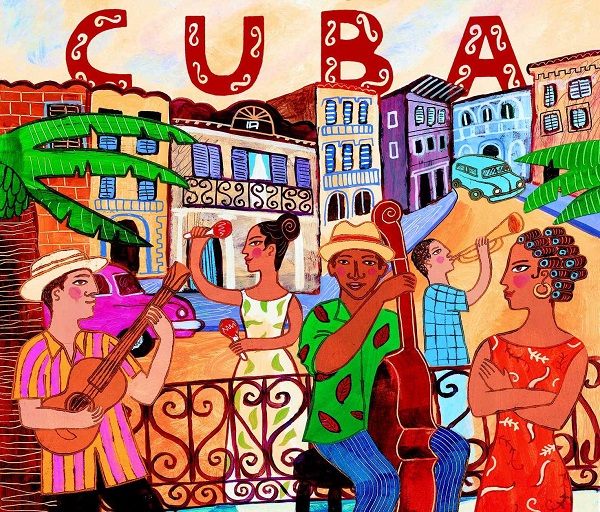13.6.2 Esteban Salas Early Music Festival

The Esteban Salas Early Music Festival was first held in 2000. The Ars Longa Early Music Ensemble hosts this event. Its venues, which feature numerous groups and instrumentalists, are located in the Historic Center of Old Havana. Each edition features a recital dedicated to the work of Esteban Salas. Master classes are offered on the use of early instruments and voices.
As part of the 2nd Esteban Salas International Early Music Festival, the French early music ensemble Le Poème Harmonique performed a unique concert featuring a program of French music by composers Michel Richard de Lalande and Marc Antoine Charpentier. Also on hand were Canadian soprano Linda Perillo; American harpsichordist Kathleen McIntosh; and Cuban ensembles Vocale Sine Nomine and Solistas de La Habana, among others.
The Ars Longa Early Music Ensemble opened the third edition of this early music festival with the concert “Italian Music in the Old and New World.” The madrigals composed by Prince Carlo Gesualdo and the hymns to divine charity composed by Domenico Zípoli during his stay in Spanish America were performed for the first time on the island. This year’s workshops included wind instruments, harpsichord, viola da gamba, baroque guitar, and other instruments.
The 4th Esteban Salas Early Music Festival paid tribute to the 400th anniversary of the premiere of Claudio Monteverdi’s L’Orfeo, one of the first works in the vocal-instrumental drama per musica (opera) genre. The inauguration took place in the Hemicycle of the Government Palace, with the island premiere by Ars Longa of Adriano Banchieri’s Italian madrigal comedy Festino!
During its run, sixteen concerts were held, showcasing a program comprised of lyrical pieces, ancient medieval dances and songs, as well as virtuoso instrumental works. Foreign groups from countries such as Spain, Colombia, and Belgium participated. Among the venues featured in this edition of the festival were the Church of Paula (Ave. Del Puerto and San Ignacio, Old Havana, Havana), the Convent of San Francisco de Asís (Oficios between Amargura and Churruca, Old Havana, Havana), the Oratory of San Felipe Neri (Aguiar and Obra Pía, Old Havana, Havana), and the Plaza de Armas, among others.
Three keynote lectures were also given in the Aula Magna of San Gerónimo University College in Havana, by professors Piotr Nawrot, Maria Antonia Virgili, and Francois Dolmetsch. The CD “Saying What the Soul Feels” by the children’s project “Little Traces” and a book by musicologist Miriam Escudero were also presented.
The sixth edition of this Cuban music event was dedicated to the inauguration of the organ of the Church of San Francisco de Paula (Avenue Del Puerto and San Ignacio, Old Havana, Havana), as it is the only one of its kind that has remained in its original state. Recitals were held there by prominent organists, including Juan María Pedrero Encabo (Spain), Stefan Baier (Germany), and Francis Vidil (France). The Luna Vocal Ensemble and the Voz Tempo Chamber Choir also made their musical mark.
The next edition of the festival was dedicated to the 250th anniversary of the death of the renowned composer Georg Friedrich Händel. The venues of the VII Esteban Salas Early Music Festival shone with performances by ensembles, performers, soloists, and orchestra conductors. Among them, to name just a few, were Niurka González, Bárbara Llanes, the Música Eterna chamber orchestra, Guido López Gavilán, and the Cuban National Choir. There were also courses on the interpretation of early repertoire offered by Professor Pascale Boquet, as well as a workshop on the construction of early plucked string instruments, taught by Didier Jarny.
The eighth edition, corresponding to 2010, was held at the Minor Basilica of the Convent of San Francisco de Asís. It took place throughout the month of February. The festival was inaugurated by musicians from Ars Longa and French professor François Joubert-Caillet, who offered a viola da gamba concert. During the festival, Joubert-Caillet taught a viola da gamba course; the closing ceremony featured a performance of a historic version of Handel’s Messiah, for the first time in Cuba. Participants also included students from the Amadeo Roldán Conservatory (Rastro No. 1 and Espada Street, Centro Habana, Havana), the Camerata Vocale Sine Nomine, instrumentalists Abraham Castillo and Frank Ernesto Fernández, the ISA Symphony Orchestra, among many others.








